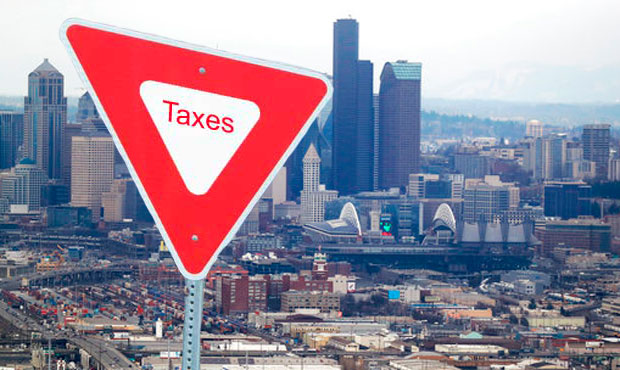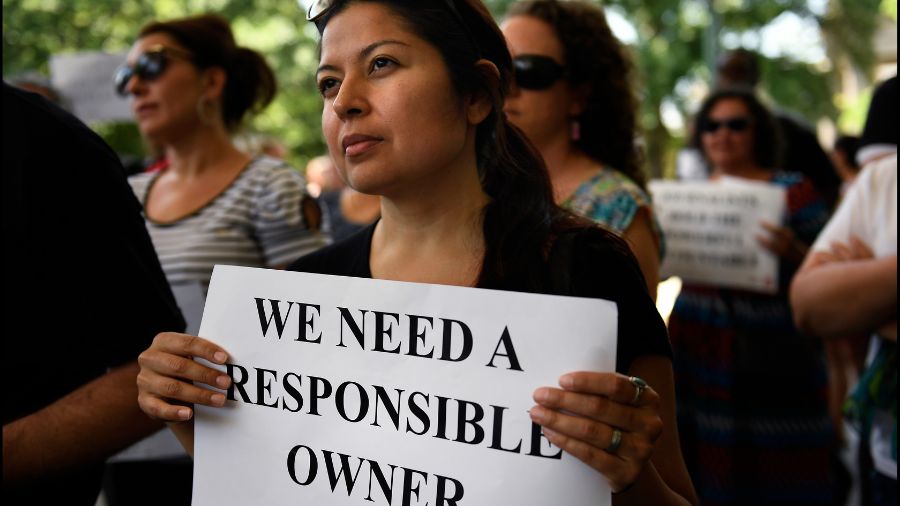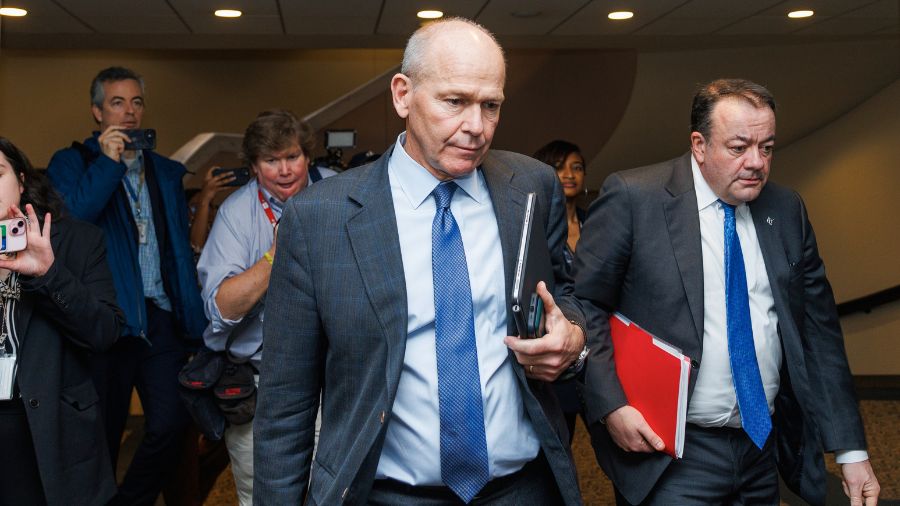Seattle proposes progressive business tax on largest companies
Apr 20, 2018, 12:36 PM | Updated: May 9, 2018, 12:58 pm

(MyNorthwest)
(MyNorthwest)
After months of deliberation and committee meetings, Seattle officials have developed legislation to impose a progressive business tax on the city’s largest companies.
RELATED: Seattle businesses say “We’re being taxed to death”
“The answer to our homelessness crisis is not as simple as being austere and shuffling existing budget priorities,” said Councilmember Lorena González. “There is no question that additional resources are needed to fund housing and services that are working. This new revenue is targeted towards building deeply affordable housing and funding services that allow a person to become healthy, stable and independent.”
The council’s progressive business tax legislation exempts non-profits and aims to avoid taxing small and medium businesses. The legislation will be introduced on April 23, then go through council committees. It could be voted on as early as May 14. Along with the legislation, the council will submit a resolution that guides spending for the tax.
“Seattle’s small businesses, about 97 percent of all businesses in the city, will not be taxed by this proposal,” said Seattle Councilmember Mike O’Brien. “Just the opposite, this proposal does much of what many small businesses want to see in responding to the crisis – create more safe and appropriate places for people to go.”
O’Brien argues that the progressive tax will “jumpstart” the region’s approach to solving the homeless crisis, which the city has failed to keep pace with.
Seattle’s progressive business tax
If passed the head tax could be implemented as soon as 2019. The proposal is really two separate taxes, implemented one after the other. The council proposes to shift to a payroll tax on Jan. 1, 2021 after three years of collecting the head tax. The payroll tax was preferred by business representatives at an April 18 council committee meeting.
- About 500 businesses will be subject to the tax, which is about 3 percent of the city’s companies. It will apply to companies making more than $20 million annually in gross receipts.
- Businesses will be taxed $0.26042 per hour, per employee working in Seattle, or $500 per employee / year.
- When the city shifts to a payroll tax in 2021, it will charge 0.7 percent of all payroll related to work performed in Seattle by those same large companies. The proposal argues that this will tax higher salaries more than smaller ones.
- Both taxes are aimed to raise $75 million annually.
What will it fund?
According to the city council, 29,000 households in Seattle earn less than 50 percent of the area’s median income and are paying more than 50 percent of their income on rent. The area needs more than 140,000 affordable units, with only about 15,000 offered or are currently being built.
RELATED: State senator wants to stop Seattle’s head tax
“In 2017, our city-funded programs exited 3,400 people from homelessness into permanent housing,” González said. “Yet, we continue to see people living and sleeping in public spaces. The causes for homelessness are varied but the result is the same: unsheltered people are unable to find their way into affordable housing because it does not exist at the needed scale.”
Of the $75 million in annual revenue from the progressive business tax:
- 75 percent (about $57 million) will fund the construction of 1,780 “deeply affordable housing units” over the next five years.
- Affordable housing will be targeted at residents earning 30 percent of the area’s median income.
- 20 percent will fund emergency shelter and other services such as building tiny homes, expanding hygiene services, expanding criminal justice diversion programs, services for people living in cars, and adding 362 shelter beds.
Follow @http://twitter.com/Mynorthwest













